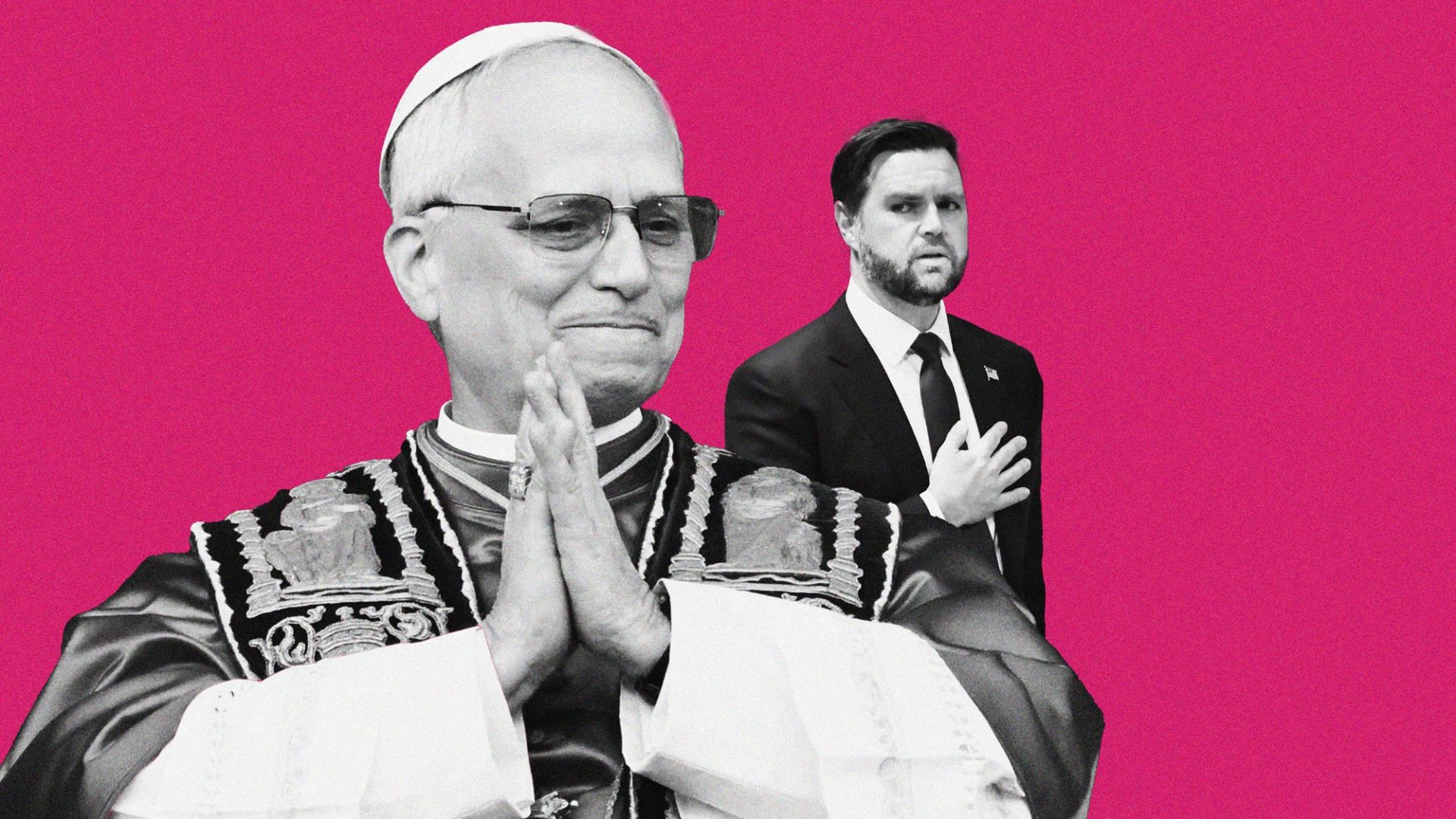When a party performs as disastrously as the Conservatives did in the general election last July – and then again in the local elections on May 1 – it is almost a constitutional convention to invoke the title of George Dangerfield’s The Strange Death of Liberal England (1935).
Today, Dangerfield’s tediously argued thesis, concerning the self-destruction of the Liberal Party between 1910 and 1914, has few academic takers. But the title has lingered in the journalistic and scholarly bloodstream.
The rush to embrace it is often ill-advised. Geoffrey Wheatcroft’s The Strange Death of Tory England (2005), for example, was published a few months before the election of David Cameron as Conservative leader, and the speedy modernisation process that enabled the party to return to office, and stay there for 14 years.
The paradoxical effect of the Dangerfield cliche, in fact, has been to steer most commentators away from political obituary. The contrarian reflex is more often to explain why, even when a party is evidently moribund, it is merely resting, or pining for the fjords.
So let me be as clear as I possibly can: the Conservative Party is indeed a stiff, bereft of life. Had it not been nailed to the perch by a few spin doctors and client journalists, it would be pushing up the daisies. It is an ex-party.
Having written about the Tories for more than 30 years, I don’t say this lightly. As editor of the Spectator and, before that, deputy editor of the Sunday Telegraph, I had a ringside seat to it all. I wrote a book about Cameron’s coalition government. I have never underestimated the ability of old, established parties to recover. All the more reason, then, to say it as I see it.
Naturally, Kemi Badenoch would contest my coroner’s report. On the Sunday after the local elections, the opposition leader told the BBC’s Laura Kuenssberg that “We are going to take the slow and steady way… We are working on a plan…. a credible offer that the public can believe in… not just with slogans and announcements, not just with easy promises”.
This is to misapply the methods of the trained engineer (which Badenoch is) to the modern arena of politics (which is dementedly impatient). She is leading a political party, not planning a surprise party. The voters will not wait respectfully for her to explain what she is going to do. Indeed, the continuing success of Nigel Farage and Reform UK suggests that they are barely looking at her party at all.
Other senior Conservatives are coming to terms with reality. In the Guardian last Monday, Justine Greening, who was Theresa May’s first education secretary, wrote: “Unlike in the past, it’s not as simple as waiting for the pendulum to swing back towards the Conservative Party. There is no pendulum. Arguably, there is no such thing as a core voter any more”.
Two days later, Jeremy Hunt, former chancellor and foreign secretary, was asked on Times Radio if his political tribe might be headed for oblivion. “We can’t rule it out,” he said. “Look at the massive earthquake in western democratic politics in other countries, and we are seeing wild swings”.
On Friday, Simon Clarke, former chief secretary to the Treasury, told the Guardian that he agreed with Hunt: “I think that we have to accept that we are fighting to justify our existence and there is no point sugarcoating that reality”.
If Greening, Hunt and Clarke are somewhere in the bargaining, depression and acceptance stages of grief, Boris Johnson is refusing to budge from a state of swaggy-haired denial. “The Tories are going to recover,” he told GB News last week. “The Tories are definitely going to recover. Of course they will!”
Interviewed in the Battle of Britain bunker in Uxbridge, the former prime minister equivocated bashfully, as he always does, when asked if he would return to bring about this miraculous recovery. But he certainly had about him the air of a quack “holistic” doctor who excitedly assures terminally ill patients that they will get better if only they drink 150 litres of carrot juice; or, in this case, make him Conservative leader again.
Yet the vital signs (or lack of them) do not lie. In July, the party suffered its worst electoral defeat, reduced to 121 parliamentary seats. In the local elections, it lost 674 seats and control of all 16 councils it was defending, with a feeble 15% share of the vote.
In YouGov’s most recent poll, the Conservatives wallowed on 17%, 12 points behind Reform. Only among the over-70s does it still cling on to a majority. This is a pathology way beyond Johnson’s remedial powers – in as much as he still has them.
In our age of endless upheaval and disruption, it is perilous to assume that anything will stay the same. As Chekhov warned: “Only entropy comes easy”. That could be the mantra of the times, especially in fields as kinetic and pitiless as politics. Things don’t end, until they do.
I have no doubt that the Conservative movement will stumble on cadaverously like a zombie with a blue rosette. The Liberal Party, after all, may have merged with the Social Democrats in 1988, but still technically exists as a distinct political groupuscule, with eight councillors. The breakaway SDP, meanwhile, has morphed from its original centrist form into a strange hybrid of left-leaning economic policies and social conservatism: not what Roy Jenkins had in mind at all.
There will always be Conservatives, just as there is still, amazingly, a tiny Whig Party. It is conceivable that the party might be taken over by Reform, like the face-hugger in the Alien movies, and become something entirely new. But the Conservative movement launched by Sir Robert Peel’s Tamworth Manifesto in 1834, institutionalised by the foundation of Conservative Central Office in 1868 and steered towards unmatched electoral success by an ecosystem of thinktanks, newspapers and clubs, has reached the end of the road.
Why am I so confident that the game is up? First, the party has done all it possibly can to trash its own brand. In 49 days as prime minister, Liz Truss ruined the Conservatives’ core reputation for economic competence – completing the job begun by the more general amateurism of the Johnson government during the pandemic.
The party has also swapped its traditional role as the defender of institutions for a debased populism. After the Brexit vote, Johnson declared himself the representative of the “will of the people”; prorogued parliament unlawfully; and, in the process, lied to the monarch.
His government was content to break international law and, in the partygate scandal, showed its entitled disregard for the Covid restrictions it imposed upon everyone else. At the time, I described this as an “ethical crash” – a collapse in standards in public life – every bit as damaging to trust in the political process as the financial crisis of 2008.
Having marketed himself as the grown-up in the room, brandishing a Bluetooth mug and a spreadsheet, Rishi Sunak resorted quickly to low-rent culture wars; insisting that the Rwanda deportation scheme did not go far enough and that his defining mission was to “Stop the Boats”; lying about a “permanent state” undermining the popular will; and tearing up net zero targets.
All this is bad enough. It is hard to take seriously a party that clocked up three prime ministers and four chancellors in a single year, as the Conservatives did in 2022. But the movement’s demise has even deeper roots than its collective nervous breakdown since the 2016 referendum.
In truth, it has been damaged by success at least as much as by failure. It has never truly recovered from its transformation in the late 1970s from an instinctively evolutionary organisation, always adapting incrementally to social change and fine-tuning its message, into an overtly ideological force.
For a decade, Thatcherism was the engine of its towering electoral achievements and redefinition of British political culture. But the party also lost much of its sensitivity to the empirical and the new. Even after it dispatched the Iron Lady in 1990, it retained her zealous spirit.
The last attempt by a Conservative leader to evolve with the times was Cameron’s social liberalism: the legal recognition of same-sex marriage, an initial enthusiasm for green politics, the ring-fencing of the international development budget, an “A-list” of candidates that made the parliamentary party much more diverse. But the financial crash presented the party with a crisis in global capitalism for which it was singularly ill-prepared.
Suddenly, it was in the least promising political quadrant: socially liberal and economically conservative. Years before Donald Trump, Farage grasped that a new wave of resentment and grievance was surging, and that a politician who vigorously opposed immigration but also stood for populist economic measures (most recently, the nationalisation of British Steel) could clean up electorally.
In this respect, the Reform leader has also capitalised on the collapse of an old consensus on the centre-right: namely, that Enoch Powell’s notorious “rivers of blood” speech on immigration in Birmingham 1968 (for which he was dismissed from the shadow cabinet by Edward Heath) had drawn a line in the sand, a ne plus ultra, over which respectable Conservatives would not step. But that line was swept away by the expansion of the EU, the arrival of social media and the rise of culture wars.
Farage and his supporters simply ignored the old conventions and crash barriers. It was digital Powellism that won the Brexit referendum.
At the same time, as successive Conservative governments clung to the Thatcherite creed of the smaller state and over-promised on border control, so the party looked less and less like a governing force and more like an entitled heritage organisation.
It was the Conservative Scottish Unionist Noel Skelton who, in the pages of the Spectator in 1923, first popularised the idea of a “property-owning democracy”. Ever since, this concept has been at the heart of the Tory electoral offer: most obviously in the sale in the 1980s of council houses and of shares in privatised utilities. In his first speech as party leader in 1991, John Major said that he wanted to see “wealth cascading down the generations”.
Today, as Gen Z voters expect, quite reasonably, to be living with their parents until their forties and to enjoy little or no job security, such rhetoric rings hollow. The relentless Conservative recourse to “aspiration” as the highest social ideal sounds delusional when graduates have to fight to get a job as a barista, more than 11 million Britons have less than £1,000 in savings, and one in four households experience “food insecurity” (more commonly known as “hunger”).
The Conservative Party has its roots in an act of deft adaptation – namely, to the new political landscape bequeathed by the Great Reform Act of 1832, which radically broadened the franchise to include small landowners, tenant farmers, and shopkeepers. After the second world war, it adjusted once again to the rise of national public services and the new welfare system.
Yet this evolutionary talent has deserted the Conservative Party precisely when it needs it most. As I wrote last May, the 21st century will require more, not less government. This is not an ideological question: it is entirely pragmatic. Climate change; population mobility; longevity; the savage inequalities within and between nations; geostrategic uncertainty, the high probability of further pandemics; the challenge of AI and quantum technology: these are the issues that will define the decades to come.
The Conservatives, so electorally wily in the past, have next to nothing to say about them. Like a bunny caught in the headlights of history, the party has been immobilised by the hectic pace of hypermodernity. It has offered no coherent response to the crisis of neoliberalism; or to the populist revolt of 2016 (which it helped to trigger); or to the profound questions posed by Covid; or to the global implications of Trump’s return.
In the years to come, the battle that counts will be between two forms of statism: the populist variety of Trump, Viktor Orbán and Farage, that defines itself by the enemies it makes and those it dehumanises; and the liberal version, much harder to construct, that will require an entirely new and dynamic approach to statecraft.
A more ambitious Conservative Party would be squaring up to the much greater challenges facing government today; recognising that a new fiscal orthodoxy, rooted in the taxation of fixed assets, is essential; and mindful always of fundamental civic rights, liberties and common decency.
But in the soup of what passes for Tory thinking today, there is nothing that comes close to this. Indeed, most Conservatives cling to the absurd notion that their party’s destruction last year was merely a failure of messaging or delivery, rather than an existential crisis.
Please understand: the decline and fall of the Tory Party does not in any sense mean that the Right is finished. Quite the opposite, in fact. If you dislike the Conservatives, wait until you see what Reform – untroubled by convention, guard-rails or muscle memory of government – has in store.
When Andrea Jenkyns, the new mayor of Greater Lincolnshire, said at her count that asylum seekers belonged in tents, she was inaugurating a new season of organised cruelty in British politics.
Farage’s plans will never add up. But their brutal heart will be the promise of mass deportation. Like it or not, his toxic movement is now the principal alternative to Labour.
Farewell to the party of Maggie; hello MAGA UK.




